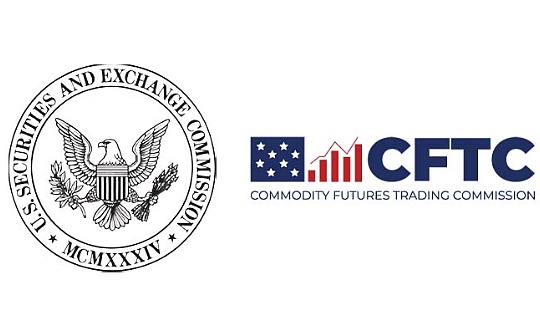
Source: Aiying Compliance
Yesterday, according to Fox Business reporter Eleanor Terrett, Rostin Behnam, chairman of the American Commodity Futures Commission (CFTC), said that the Illinois court has confirmed that according to the “Commodity Trading Law”, BTC and ETH are digital products.And this ruling is only applicable to Illinois, and does not represent the position of other states or federal governmentsEssenceSo don’t be too excited. After all, it is not a federal bill. Don’t move. Don’t move.After all, there are 50 states in the United States, and each state has its own government system and legal system.In addition, there is a federal district in the United States, Colombian Special Economic Zone (Washington Special Economic Zone).In addition to these 50 states and a federal district, the United States also has some overseas territories, such as Puerto Rico, Guam, the United States Virgin Islands, the North Maliana Islands and the United States. In some aspectsright.
1. Which states have clear that BTC and ETH are digital products?
The U.S. District Court clearly classified Bitcoin (BTC) and Ethereum (ETH) as products in many cases.The following is the court’s jurisprudence:
-
CFTC Loch McDonnell CaseTheNew York East District District CourtJudge Jack B. Weinstein ruled in 2018 that Bitcoin is a commodity supervised by the Commodity Futures Trading Commission (CFTC).The case involved the charges of virtual currency fraud, and the judge ruled that CFTC had the right to supervise virtual currencies such as Bitcoin.
-
CFTC complains my big
Coin caseTheMassachusetts District CourtJudge Rya W. Zobel ruled in 2018 that virtual currency is a product under the “Commodity Trading Law”.This case involves My BigCoin For fraud, the judge determined that the virtual currency complied with the general definition of commodity in the “Commodity Trading Law”. -
Uniswap collective lawsuitTheDistrict Court of Southern New YorkWhen the judge Katherine Polk Failla rejected a collective lawsuit against Uniswap in 2023, it clearly stated that Bitcoin and Ethereum were “encrypted goods”, not securities.
-
Ripple (XRP) case: In December 2020, SEC filed a lawsuit against Ripple Labs, claiming that it had undergone unregistered securities issuance through the sale of XRP.Although the case is concentrated on XRP, it reflects the supervision of SEC’s supervision of most cryptocurrencies.
-
SEC’s lawsuit against coinbase: In the recent legal operation, SEC sued Coinbase, saying that some cryptocurrencies on its platform were unregistered securities.This lawsuit involves multiple cryptocurrencies and further shows that SEC’s strict regulatory attitude towards cryptocarrically assets.
-
Background investigation: A detailed background investigation of the company and its executives to ensure that they have not participated in any illegal activities.
-
Financial requirements:The company needs to show its sufficient financial resources to support its business and ensure that they can fulfill their obligations to customers.
-
Compliance plan: The company must have a comprehensive compliance plan, including anti -money laundering (AML) and understanding of the customer (KYC) policy
-
Capital gain tax: When you buy and sell cryptocurrencies, you need to pay taxes based on its value -added part, just like buying and selling stocks.
-
Record preservation: Individuals and enterprises need to save detailed transaction records in order to accurately report tax information
-
Transparency requirements: Require cryptocurrency companies to provide customers with clear service terms and cost structures to prevent fraud.
-
Complaint mechanism: Establish a special complaint mechanism, consumers can report to the state government any illegal or unfair treatment
-
https://x.com/eleanorterrett/status/1811042341521703213
-
https://freemanlaw.com/cryptocurrency/illinois/
-
https://www.coindesk.com/policy/2023/02/27/illinois-illials-Push-State- Crypto- Licensing-TO-EW-YORKS- Bitlicense/
-
https://www.cftc.gov/
So far, no U.S. state has clearly classified Bitcoin (BTC) and Ethereum (ETH) as securities.However, the US Securities and Exchange Commission (SEC) expressed on many occasions that it believes that many cryptocurrencies should be regarded as securities.SEC Chairman Gary Gensler once said that except for Bitcoin, most of the other cryptocurrencies may meet the definition of securities, especially Eta.
SEC’s position is reflected in the following aspects:
SEC’s position on cryptocurrencies is usually based on how the HOWEY test in the Securities Law.Howey testing is a standard for determining whether a transaction constitutes a securities investment contract. According to the test, if a transaction involves money investing in a common enterprise, and it is expected that it mainly depends on the efforts of others to obtain profits, the transaction then the transaction, then the transaction will then the transaction, then the transaction will then the transaction, then the transaction will then the transaction.It may be regarded as securities.
Although the SEC has a strict regulatory attitude towards cryptocurrencies, there are no specific state laws that have clearly classified Bitcoin and Ethereum into securities.And this year’s House of Representatives voted through the House of RepresentativesThe 21st Century Financial Innovation and Technical Act is also known as the FIT21 ActAlthough passed, this bill will clarify the US regulatory framework for cryptocurrencies, promote the launch of blockchain projects in the United States, clarify the regulatory duties of SEC and CFTC, end the grievances between SEC and CFTC and the torture of the project party, Generally speaking, 71 Democrats and 208 Republicans voted to support the bill, and 3 Republicans and 133 Democrats voted against votes.President Joe Biden objected to the bill with a policy statement, although he did not say he would veto the bill.The bill will be revised and submitted to the Senate, and it will eventually need to be approved by Biden, and the specific time is not determined.
2. Illinois encryption supervision policy
Aiying Aiying combed Illinois’s policy, and there are several key points:
1. License requirements
Illinois is promoting a cryptocurrency license system similar to Bitlicense New York State.This system requires cryptocurrency companies operating in Illinois to obtain specific permission from the state government to ensure that they meet a series of strict security and compliance requirements.This includes:
2. Tax policies
Illinois’s taxation of cryptocurrencies also clearly stipulates.Cryptocurrencies are regarded as property, so they need to report capital profit tax during transaction.This means:
3. Consumer protection
Illinois attaches great importance to consumer protection, especially in the field of cryptocurrencies.To this end, the state government has taken the following measures:
At present, a mining company Sangha Systems has established a large -scale cryptocurrency mining facility in Illinois, and plans to provide energy by building a solar power generation array.Bitcoin ATM: COINFLIP, headquarters in Chicago, Illinois, operates more than 2,500 Bitcoin ATM machines, covering 47 states. In addition, cryptocurrency exchanges such as FTX.us have set up offices in Chicago.
Reference information:






